First, there was the battle of getting your baby to latch when you began breastfeeding or bottle-feeding, but they figured it out eventually. Just when you thought you had it all under control, they're happy taking breast or bottle-feeding you excitedly started googling, "When do babies eat solids?" Fast forward about six months, and now you're facing a whole new challenge, weaning!
Now some children take to solid foods with little fuss, but if mealtimes have become a real struggle and your baby now refuses everything, sometimes even playfully spitting it out or tossing it on the floor, don't worry you're not alone. It's enough to make any mum feel exasperated, we totally get it.
That’s why we’ve reached out to the UK’s leading baby food experts to answer common questions: “Why has my baby stopped showing interest in solids?”, “Do babies go through phases of not wanting solids?”, and “What should you do when your baby doesn't want to eat solids?”
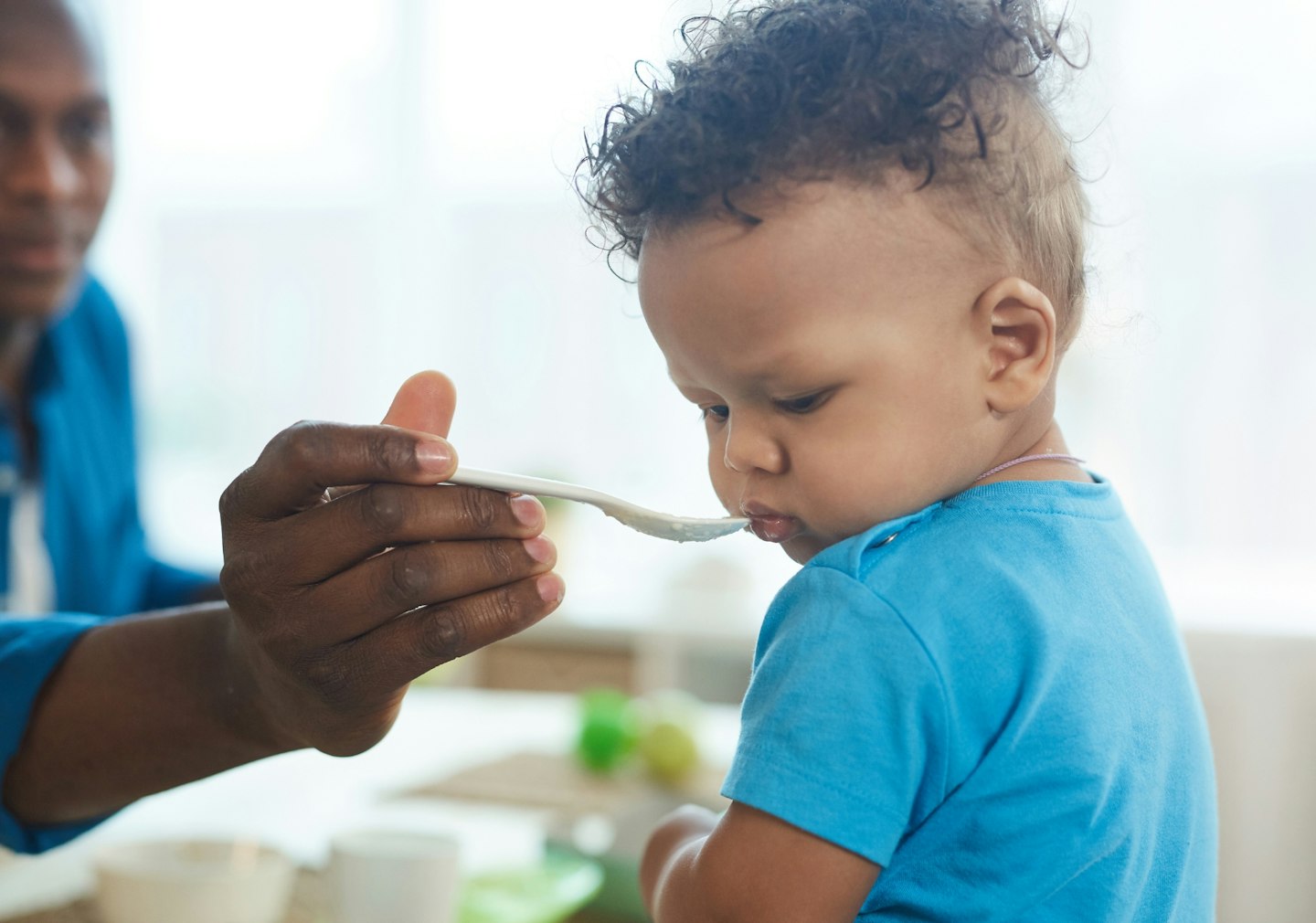
What are the most common reasons why some babies refuse to eat solids?
For first-time mums, it can be surprising when babies refuse to eat, especially when they seem eager to taste everything else. It can feel like they'll put anything in their mouths except the food we offer them.
Charlotte Stirling-Reed, a baby and child nutritionist and author of "How to Wean Your Baby," points out that babies vary widely in how they take to weaning onto solid foods.
"Some may be unsure about foods and prefer milk instead. Babies' appetites can change due to factors like the weather, their health, what they ate the day before, how much milk they're drinking, distractions, and milestones. It's normal for babies to have good and bad days with eating during weaning," she explains.
Babies' food preferences actually begin in the womb. Research shows that around 15 to 16 weeks after conception, foetuses display a preference for sweetness by swallowing more amniotic fluid when it's sweet and less when it's bitter. This early exposure may "prewire" babies to detect and prefer sweeter foods, which helps them prepare for breast milk or formula.
Annabel Karmel MBE, a leading children’s cookery author and food expert explains, "Just like adult palates, babies are born with mature taste buds capable of detecting sweet, bitter, sour, and savoury tastes. However, after six months of primarily consuming breast milk or formula, which naturally contains lactose and is sweet, many babies develop a preference for sweet foods such as sweet potato, carrot, or parsnip. If you're finding it challenging to get your little one interested in solid foods, I recommend starting with roasted butternut squash fingers or a root vegetable puree."
Do babies go through phases of not wanting solids or can become a long-term issue?
Solid feeding challenges can affect up to one in four babies and young children, but there's no one-size-fits-all solution because, as Charlotte points out, "every baby is different, and so is their journey with weaning."
Why has my baby stopped showing interest in solids? "It could just be a phase because there are countless reasons why your baby might refuse food," Annabel explains. "They might not be hungry, want to assert control, dislike something, or simply be in a cranky mood. Factors like being overtired, unwell, or teething can also affect their appetite."
Charlotte adds that even the baffling reason why your baby resists sitting in the high chair or at the table right now could be because "they're reaching a new milestone and don't feel like being confined to a seat."
However, experts on feeding problems say if these mealtime struggles continue, they can become even more challenging to address. This can lead to frustration for both the baby, the parent and the whole family and it might also result in nutritional deficiencies.
"In most cases, food refusal is a phase that will eventually pass. However, if you suspect your baby is struggling with feeding, it's crucial to consult your GP or health advisor to rule out any underlying medical issues," Annabel advises.
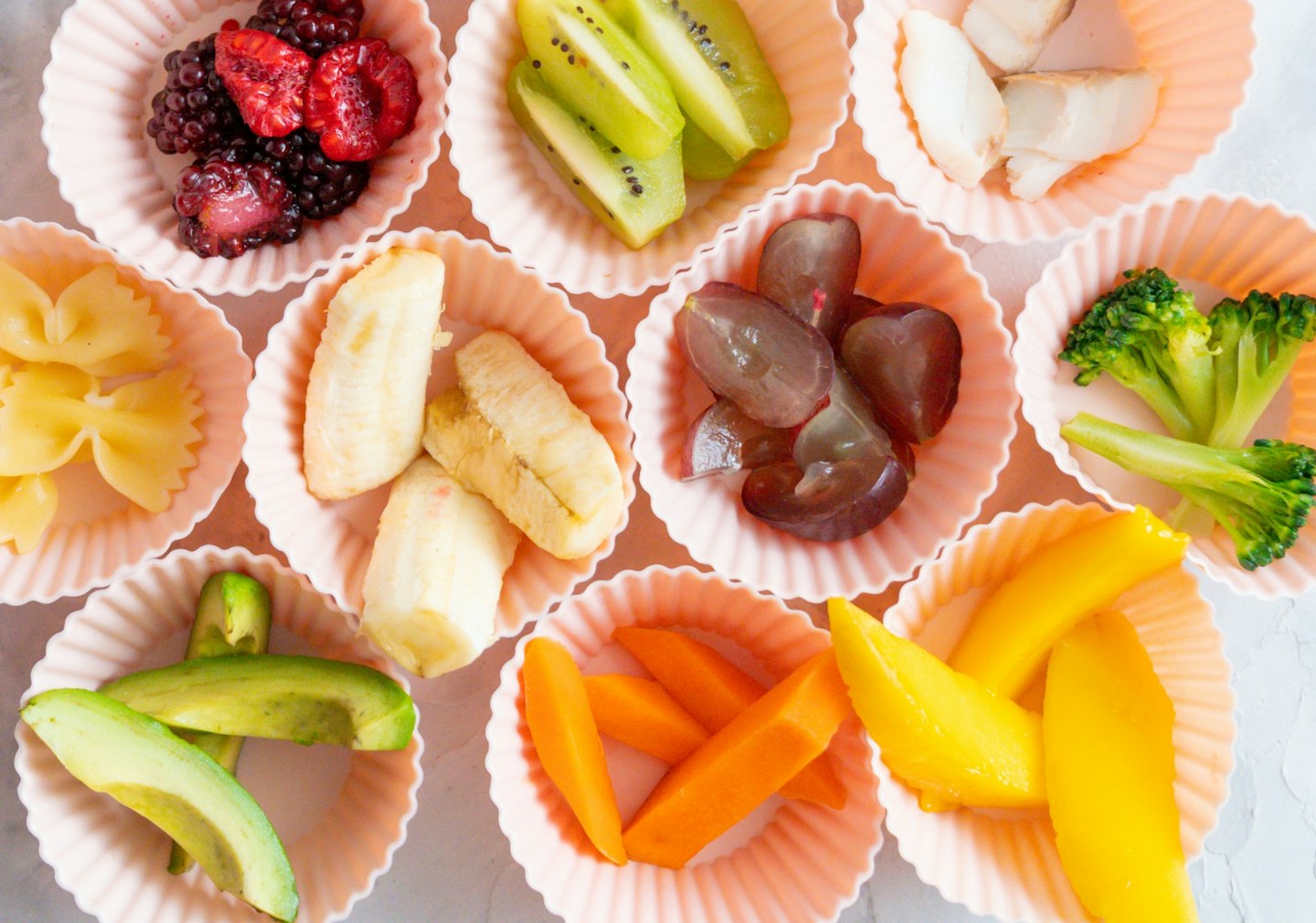
Top recommendations of first solid foods for fussy eaters
Charlotte’s recommendation: “I’m a big advocate of veg led weaning, so I usually recommend that weaning starts with some single tastes of veggies. Broccoli, potato, spinach and avocado (even though it’s a fruit it has a really savoury taste) are some of my fav first foods to try for babies. Offering veggies for their first tastes helps them try something totally new & may help increase acceptance of veggies later on too, especially if you continue offering veggies along with a variety of other foods well into their weaning journey!”
Annabel’s recommendation: “The main focus forfirst weaning foods is helping your baby get to grips with new textures and tastes. They will still be getting the majority of their nutrition from their usual milk, so don’t worry about how much food your baby is actually eating in those first few weeks. When most babies start to wean, they have few (if any!) teeth, so you should start with simple, soft vegetables and fruits. Ripe fruits such as bananas or melon, or steamed vegetable fingers like carrots, broccoli or courgettes are perfect for first finger foods that can be ‘gummed’ to the right consistency."
What role do textures and flavours play in food acceptance during weaning?
Whether you are going down the spoon-fed or baby-led weaning route, introducing a variety of textures and flavours to your baby’s diet is crucial for their development.
Annabel advises that while babies naturally prefer sweet tastes, it’s important to offer them bitter and savoury flavours, such as broccoli, right from the get-go. If introduced early in your baby’s weaning journey, and with repeated exposure, it’s likely they’ll be more receptive to these foods, setting them up to be more adventurous with their food in the future.
Even when met with resistance, Annabel encourages to try something different, “Even if your baby is hesitant when it comes to exploring new foods, try preparing their preferred foods in different ways. For example, you can mash, boil, roast or fry sweet potatoes, and each cooking method offers a new texture, flavour, colour and size for your baby to get to grips with."
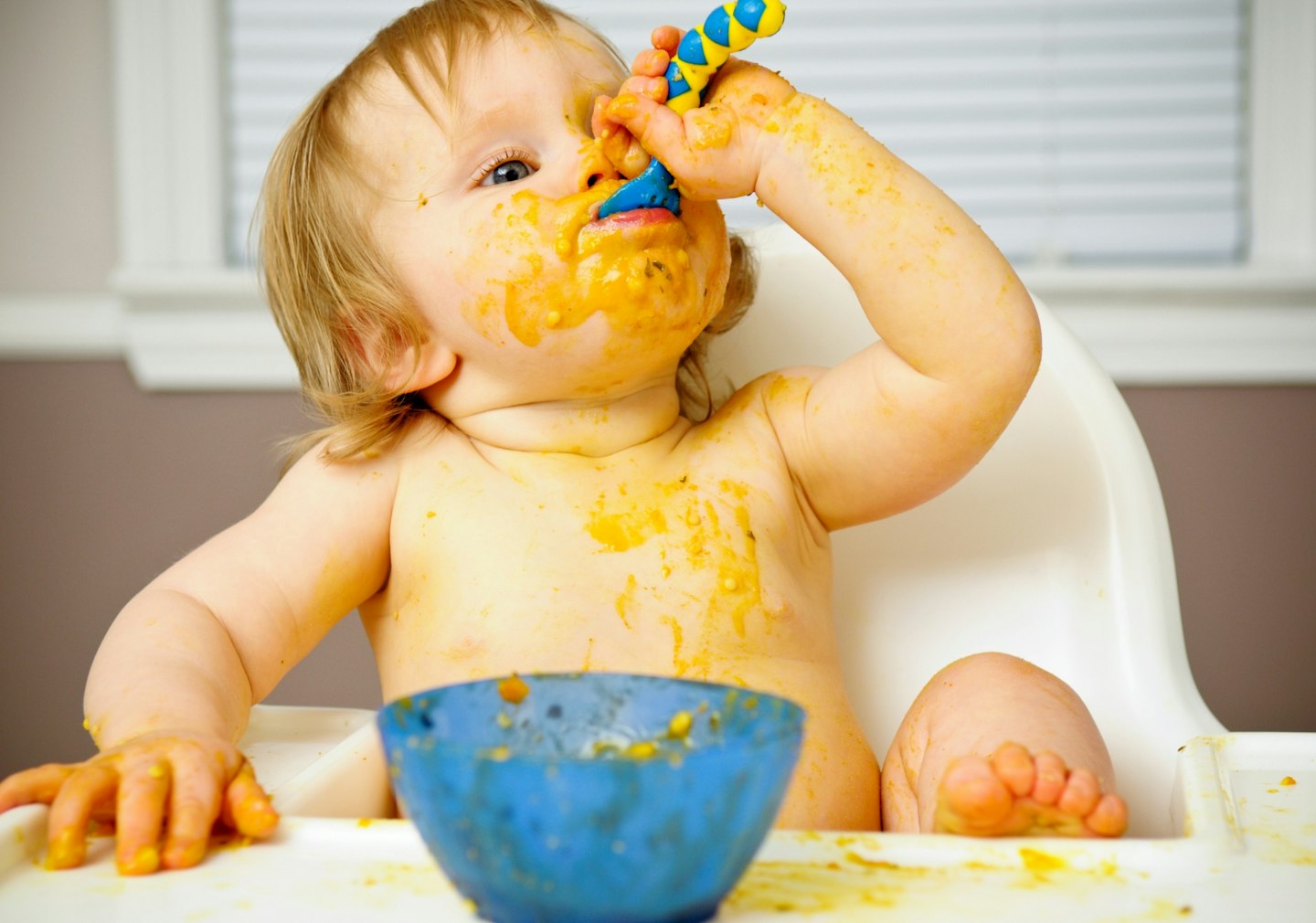
Weaning expert-approved baby mealtime routine
Charlotte advises mums to establish a mealtime routine to help babies anticipate when it's time to eat, which can help them become more accepting of solid foods over time. Here are some things you can do to establish a mealtime routine for babies:
-
Establish a regular routine around mealtimes so that the baby knows when to expect food.
-
Try to sit and eat with your little ones as often as possible so they can learn about eating and enjoying food from you.
-
Avoid pressuring your baby to "eat up" as this approach often backfires.
-
Encourage self-feeding and offer independence in making choices during their mealtimes.
-
Allow them to play with food to help them become familiar with it.
-
Keep mealtimes light and enjoyable — this is the best way to encourage your baby to participate in them going forward too.
What to do when your baby doesn't want to eat solids?
"Giving a little break between milk feeds and solid meals can also encourage babies to explore different foods," Charlotte suggests. "But it's important to remember that some babies take longer to get used to solids, and pushing them to eat more can backfire. If you're worried about your baby's weight or how much they're eating, don't hesitate to talk to your health visitor," she advises.
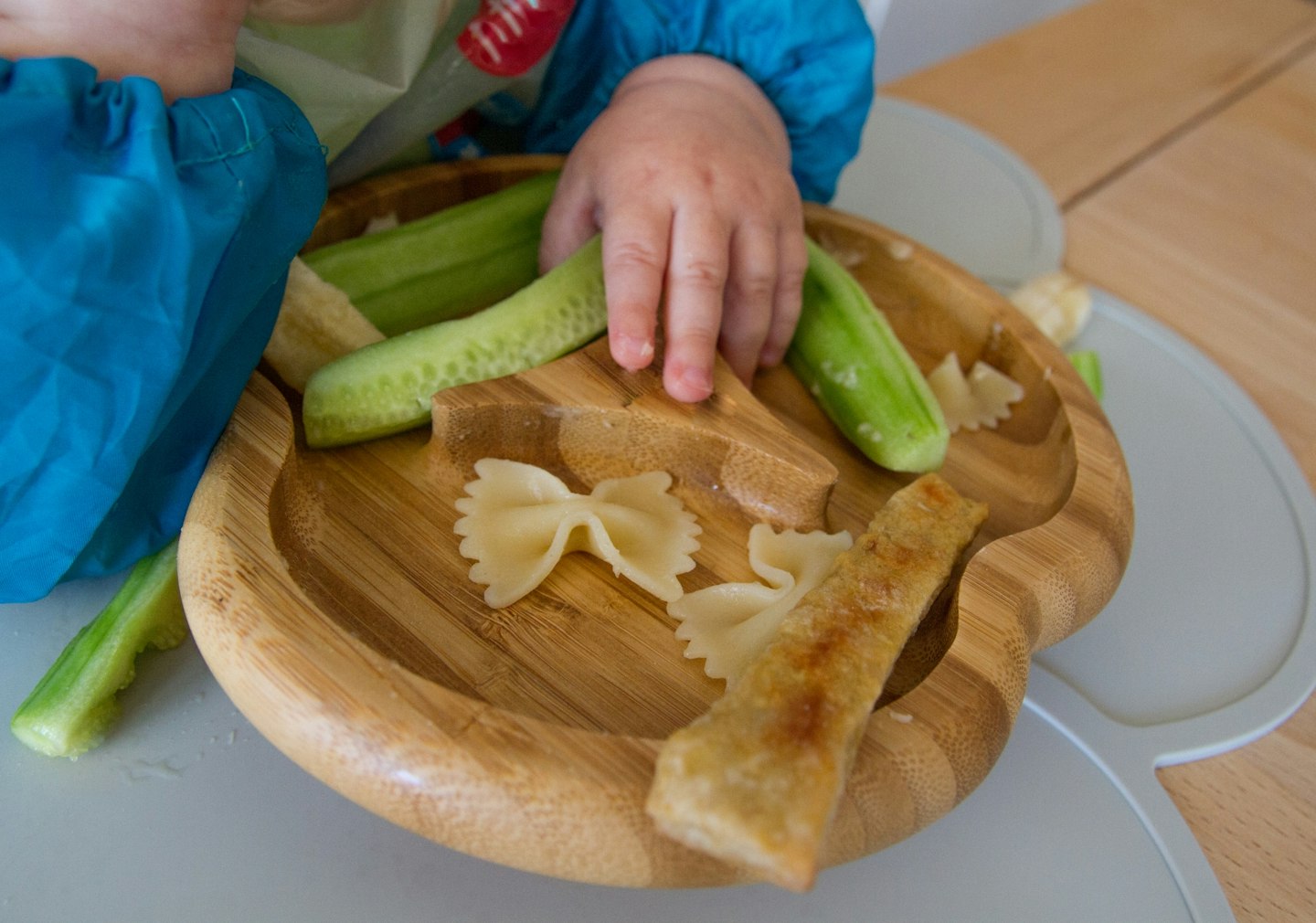
What to avoid when your baby is not interested in solids?
Here are some things to keep in mind when your baby isn’t interested in solids. Remember, it’s completely normal for babies’ appetites to fluctuate. While it can be challenging, try to enjoy the journey and let your little ones guide you.
-
Avoid skipping mealtimes: It can be tough, especially when you’re out and about, but maintaining a consistent mealtime routine is important. Offer food regularly so it becomes part of your baby’s routine. Charlotte also suggests not skipping meals yourself: "If your baby never sees you eat, it's harder for them to understand why food is important."
-
Don’t cook something else: It’s natural to feel guilty, but cooking something different might not help. Charlotte advises, "Babies need to learn to listen to their own appetites. They have many chances to eat throughout the day, including milk feeds."
-
It’s not your fault: "If your baby refuses food, it’s not a reflection on you or your cooking," reassures Charlotte. "They may simply not be hungry that day."
-
Let babies take the lead: Annabel shares, "Mealtimes can be tough when your baby isn’t interested in what you’ve prepared. I’ve been there myself with my fussy eater. Stay calm; if they sense your frustration, it can make things worse. Take a breath and let them guide the meal—even if that means ending it early."
-
Mix familiar flavours with new ones: Annabel recommends, "Give your baby a slightly smaller portion of a meal they enjoy and also introduce new foods alongside this. That way, your baby has the comfort of something they know, but also has the opportunity to explore."
-
Keep trying and offering new foods: "Expose your baby to different foods early on," advises Charlotte. "This helps them get used to a variety of tastes. It may take time for them to get used to new foods, so be patient. It’s all part of the journey of motherhood."
How can parents make sure their baby gets enough nutrition if they're having trouble getting them to eat solid foods?
The British Nutrition Foundationreassures that milk is the main source of nutrition for babies until about 10-12 months old, so there’s no rush to push solids. In the early months, focus on introducing solid foods that are nutritious and varied to support your baby’s growth.
"Try to include foods from different food groups on your baby's plate, such as vegetables and fruits, whole grains and starchy carbohydrates, as well as protein and iron-rich foods," advises Charlotte. "Be attentive to any signs that your baby may struggle with certain foods or textures, or if they appear distressed during meals," she concludes.
Charlotte has an ongoing Fussy Eating Crash Courseyou can join whenever you're ready. It's full of practical tips backed by the NHS and based on Charlotte's experience with thousands of parents and her own toddlers.
If you have concerns about your baby's eating habits, any underlying medical conditions, or their growth, it's important to seek advice and possibly a referral from your local GP.
The ultimate weaning set to tame fussy eaters
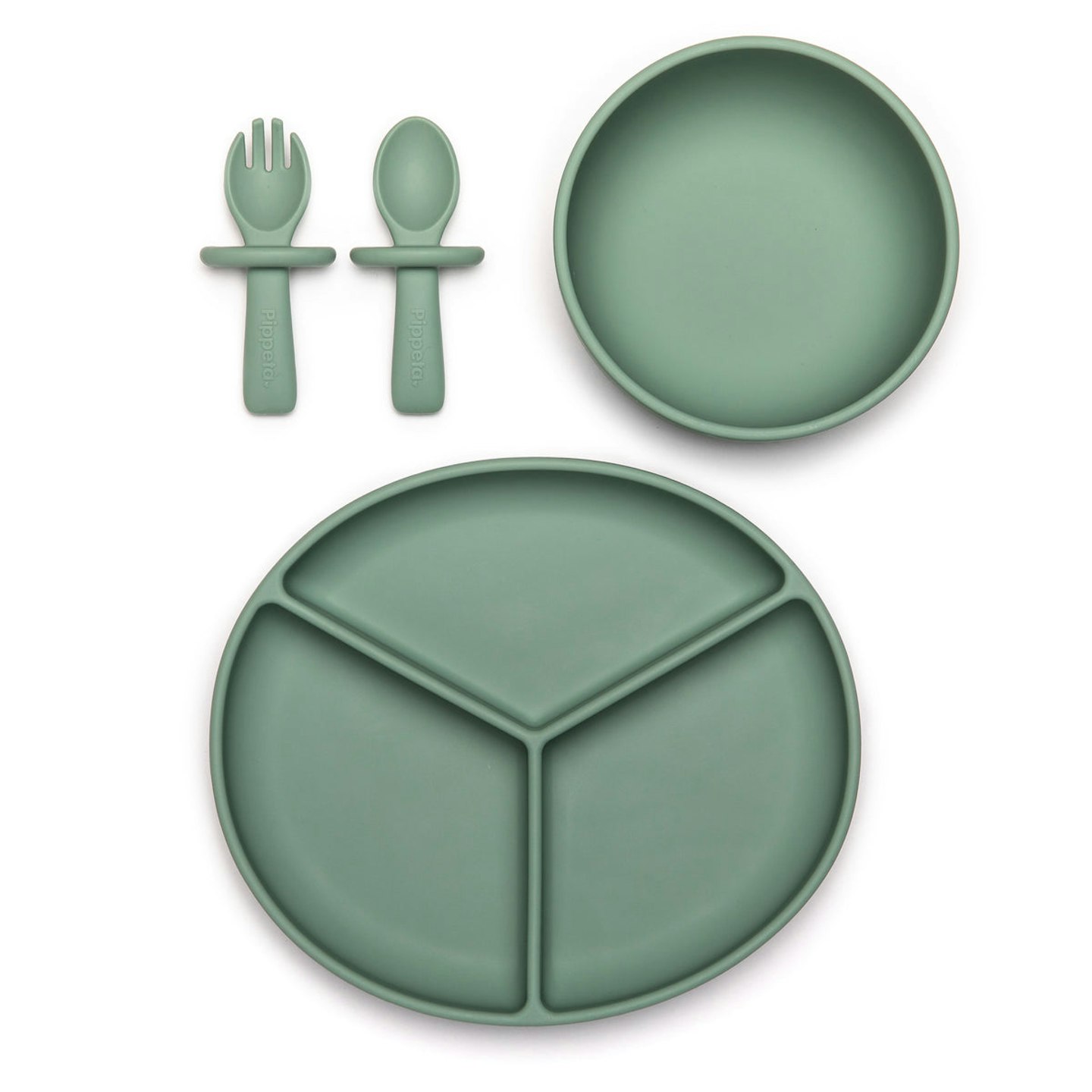
pippeta.com
Are you struggling with fussy eaters at mealtime? Make your baby-led weaning journey easier with the right weaning essentials.
We absolutely love this Pippeta My 1st Weaning Set in meadow green—it's the perfect way to introduce your little one to cutlery and tableware. Designed to encourage self-feeding and exploration, this set supports independent eating from the very start.
The bundle takes the guesswork out of weaning, including everything you need: the Pippeta Section Suction Plate, Pippeta Suction Bowl, and Pippeta My 1st Spoon & Fork, all beautifully packaged in one box.
Senior Digital Writer Anne Lora Scagliusi is a big fan of Pippeta: “I originally bought a different set from Amazon, thinking it was high quality—until I tried the Pippeta set. I love the section suction plate because it feels sturdy, and the suction is so strong my son can’t even toss it on the floor, which is a huge win! Plus, as a mum who loves all things aesthetic, I appreciate the sleek, minimalist design and subtle colour. It fits perfectly in our Scandi home.”
Pros
- Helps little ones practice independent eating
- Plates and bowls stay securely in place, reducing mess
- Non-toxic, BPA-free, and "Approved by Mini First Aid."
Cons
- Some children may need time to adjust to utensils
About the expert
Charlotte Stirling-Reed is “The Baby & Child Nutritionist” and is a Registered Nutritionist with the Association for Nutrition. Charlotte is also an author and mum to little foodies Raffy and Adaline, and owner of consultancy, SR Nutrition. It’s her mission in her work to give parents confidence in feeding their children.
Annabel Karmel has over 25 years of experience in children's nutrition and is a best-selling author... 45 cookbooks and counting! From healthy eating during pregnancy, to critical nutrients when weaning your little one and how to manage fussy eaters, Annabel has pioneered the way families all over the world feed their babies and children.
Anne Lora Scagliusi is a Senior Digital Writer at Mother & Baby. She is a Scotland-based journalist with over a decade of international writing experience, specialising in women’s health, maternal mental health, and wellness. Her work has been featured in Vanity Fair, Marie Claire, and Glamour and has appeared on several Vogue global editions. She is mum to a one-year-old bambino and lives between Italy and the UK. You can follow her on Instagram.
